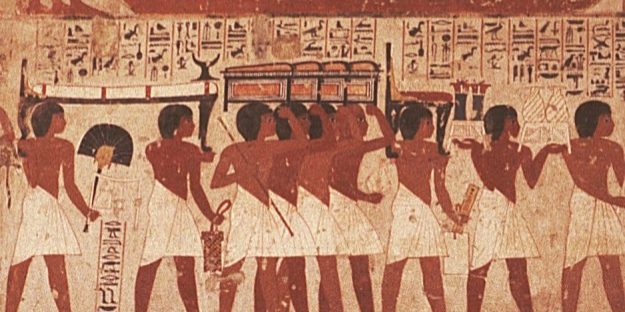
What about Peter Enns’ Exodus Commentary? (Timothy Raymond)
As I’ve mentioned before, for the last year I’ve been preaching through the book of Exodus at my church. (In the event anybody is interested, here’s a link to the audio.) The Lord enabled me to do a good bit of research into and about Exodus, and in this series of blog posts I’m seeking to help you, my brother-pastors, more effectively preach Exodus by directing you to some of the best resources I’ve discovered. (For previous installments in this series, go here and here).
Many have wondered about Peter Enns’ Exodus Commentary in the NIV Application Commentary Series. Since I was asked my opinion of this specific volume in the comments section of a previous blog, let me briefly share my thoughts here.
 Enns’ commentary is a truly amazing work in every way and has garnered the much-envied 5-star rating in Tremper Longman’s Old Testament Commentary Survey. He’s read just about everything on Exodus (including obscure journal articles and Jewish rabbis), is very helpful on contemporary application (as is the entire NIVAC series), and writes in a very engaging, easy-to-read manner (it’s the sort of commentary you could read for fun on the couch). I confess that it is one of the best commentaries I’ve ever used on any book of the Bible.
Enns’ commentary is a truly amazing work in every way and has garnered the much-envied 5-star rating in Tremper Longman’s Old Testament Commentary Survey. He’s read just about everything on Exodus (including obscure journal articles and Jewish rabbis), is very helpful on contemporary application (as is the entire NIVAC series), and writes in a very engaging, easy-to-read manner (it’s the sort of commentary you could read for fun on the couch). I confess that it is one of the best commentaries I’ve ever used on any book of the Bible.
However, since the writing of Exodus, as many of our readers will know, Enns went off the evangelical reservation. He’s denied several evangelical fundamentals such as a historical Adam and Eve and the inerrancy of Scripture, was dismissed from teaching at Westminster Theological Seminary after a rather painful and public controversy, has begun constantly promoting theistic evolution, and has taken upon himself the calling of straightening out benighted evangelicals (meaning, as I see it, corrupt them with liberal theology). It seems as if Enns jumped on the Emergent Church bandwagon right after the bandwagon collapsed.
So what shall we make of his Exodus commentary? Well, again, the commentary is outstanding and many will find it helpful. However, I hesitate to encourage anybody to read much from somebody who has become (what I consider) a false teacher. Moreover, and this is far more significant, many of the misguided ideas that Enns is now trumpeting are found in seed-form in the Exodus commentary.
For example, Enns constantly claims that expecting historical accuracy and consistency from the ancient Bible is a modern Western idea that we should stop demanding. On page 297 he writes:
“If we go through this song [Exodus 15], as many have done, with a fine-toothed comb, looking for possible discrepancies with the narrative of chapter 14, we will find them; but in so doing we will have misread the song. It is a modern Western penchant to require complete ‘consistency’ between accounts, but the biblical authors are not so concerned. We must resist the temptation to impose our own modern expectations on a text, which ancient texts are not always prepared to shoulder.”
Now, taken at face value, such a paragraph might simply elicit a curious head-scratch from most evangelical pastors. Why wouldn’t he try to do anything to reconcile apparent discrepancies? Are perceived contradictions truly a modern idea? But when you trace this line of thinking forward in Enns’ personal biography, you’ll quickly see where it leads. It’s exactly this presupposition which led him to denying the historicity of Adam and Eve, and then inerrancy, and then other fundamentals. This pattern could be replicated for most of Enns’ troubling teachings. They’re already in larva stage scattered throughout his Exodus commentary.
So, do I recommend Enns’ Exodus commentary? For the reasons I enumerated above, I do not. Though I read him, I will never quote him to my congregation (though I have quoted Brevard Childs; I can explain that more if you’re interested). You can find all the same good stuff in Enns’ commentary in other trustworthy evangelical commentaries without having to filter through the questionable presuppositions, or subtly imbibing wrong ideas under the radar.
Lord willing, in my next post in this series I intend to recommend a few trustworthy evangelical exegetical commentaries on Exodus. I hope to follow up with posts on good commentaries for preachers and possibly a few resources on the Tabernacle.
I’ll close by reiterating my invitation. If there are resources on Exodus (i.e., lectures, commentaries, books, etc.) you’d recommend or would like me to review, leave them in the comments below and I’ll consider including them.
Timothy Raymond is an editor for Credo Magazine and has been the pastor of Trinity Baptist Church in Muncie, Indiana since April 2006. He received his MDiv from the Baptist Bible Seminary of Pennsylvania in 2004 and has pursued further education through the Christian Counseling and Educational Foundation. Tim grew up outside Syracuse, NY and previously served at Berean Baptist Church, Nicholson, PA (member and teacher during college and seminary) and Calvary Baptist Church, Sandusky, Ohio (seminary internship location). Tim met his wife Bethany at college, and they were married in May 2001. Tim enjoys reading, weight-lifting, wrestling with his three sons, and attempting to sleep.
